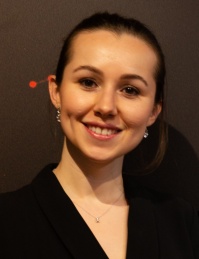Disputation
Due to the ongoing Pandemic, the Disputation will be held digital using Zoom. The Chair of Defence will lead the Disputation and the Defence technician will solve technical issues.
Ex auditorio questions: The Chair of Defence will invite the audience to ex auditorio questions. These can be asked orally, by clicking "Participants - Raise hand" in the Zoom menu. The Zoom-host will grant you to speak in the meeting.
Order the Dissertation as PDF from this email address. Please add name of Candidate: a.c.gartner@kjemi.uio.no
Trial lecture
2nd. of June 2021 at 3.30 PM, Zoom. NB! Date and time
Title: "Lipid vesicles and lipid nanoparticles for drug delivery and vaccination"
Conferral summary
Elif Senem Köksal har observert og definert en mulig vei for dannelse og utvikling av primitive celler tidlig i jordens historie. Hun har også undersøkt mulige implikasjoner av denne nye ruten mot livets opprinnelse. Köksal tok hensyn til en mulig fundamental rolle av faste overflater, i tillegg til de tidligere aksepterte teorier som bare involverer fettmolekyler og vann.
Main research findings
By enabling formation and development of primitive cells, also known as protocells, solid surfaces might have played an important role in the emergence of life on Earth.
Current theories on how life originated from primitive cells are based on the initial step, where a spherical capsule made from fat molecules formed spontaneously in water. This model explains the formation well, but not the following steps, such as growth, replication and division.
In this PhD thesis, the possible involvement of solid surfaces in the formation and development of primitive cells has been investigated. Solid surfaces existed in the form of rocks and minerals on the early Earth.
By bringing together three simple ingredients: solid surfaces, fat molecules and water, and observing their interactions by means of microscopy, a series of unique transformations has been identified. Examples of such behavior are the formation of protocell networks connected with lipid nanotubes, formation of subcompartments similar to organelles in modern cells, protocell fusion and colony formation. Nano-engineered artificial surfaces, as well as natural surfaces including glasses, minerals, rocks, and a meteorite fragment from Mars originating from the earliest crust of the planet were used in the studies.
